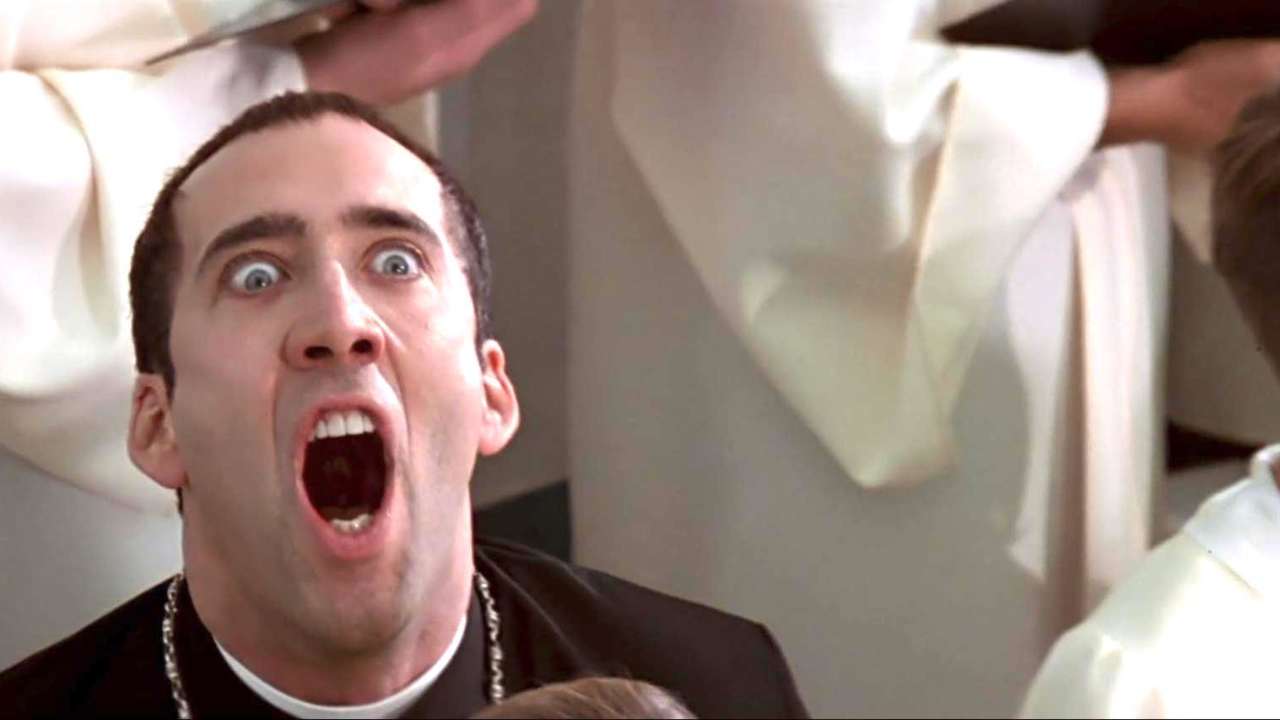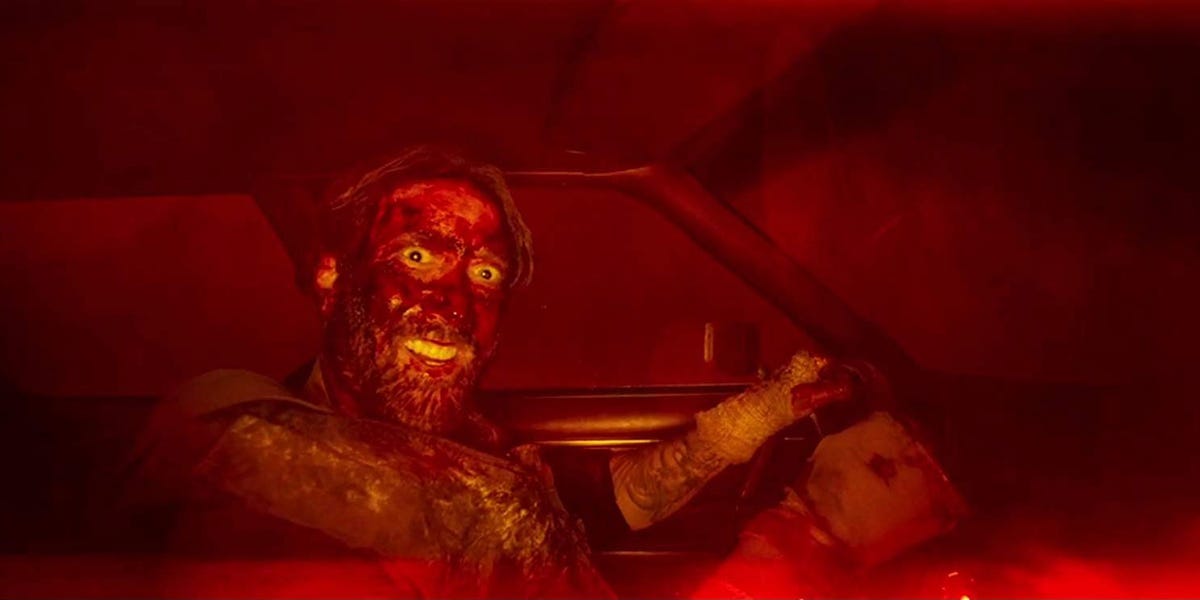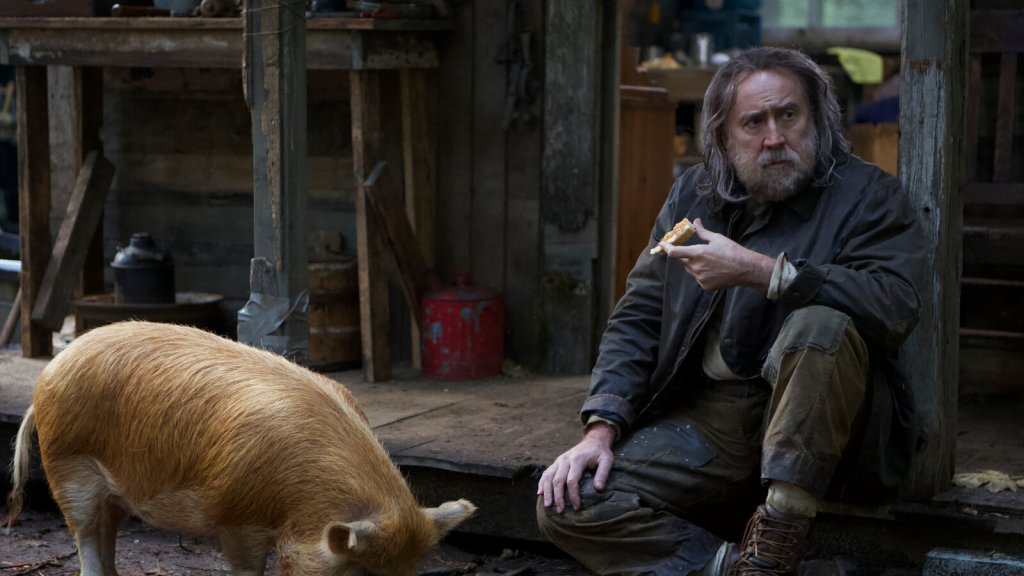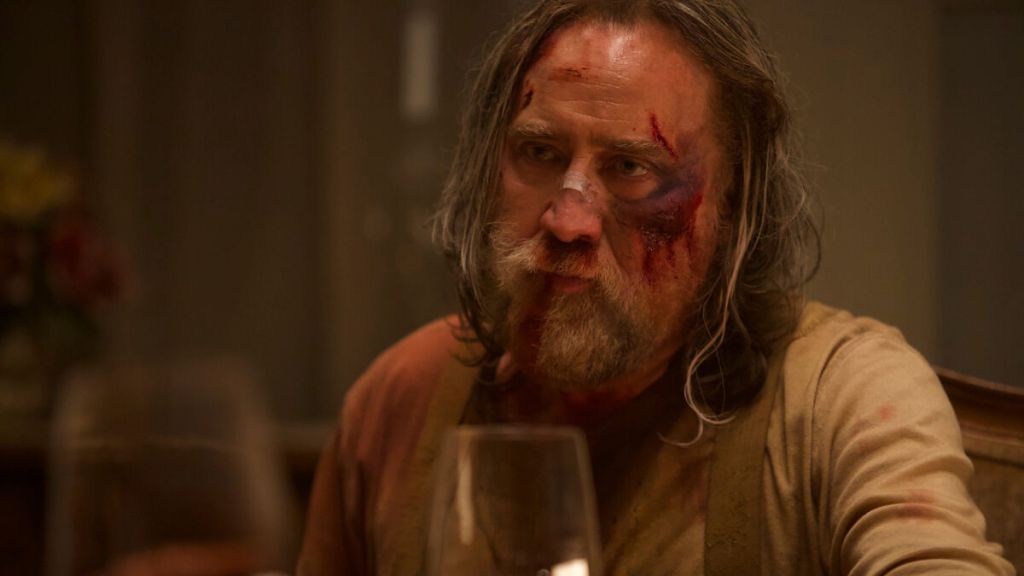I will defend Nicholas Cage until my dying breath.
Sure, he’s a little eccentric. And okay yes, maybe he doesn’t exactly always make the smartest career choices. There’s The Wicker Man, of course. And Ghost Rider. Knowing. The second Ghost Rider. You get the idea. Some real stinkers.
And sadly, because of that, there seems to be a consensus within the public, pop-culture consciousness that Cage is some sort of a novelty, an actor that’s essentially nothing more than the butt of a decades-long joke. When his name is mentioned, it conjures images of his most bizarre and flamboyant performances, from his crazed, incoherent ramblings in Face/Off to the entertaining cheese of the National Treasure films. And, to be fair, those are fairly representative of the energy that he tends to bring to a lot of his roles. He’s certainly a unique performer, to put it mildly.

But the tragedy of this association with schlock and over-the-top, borderline self-parody (which, in all fairness, Cage himself has seemed to embrace with open arms) is that it causes audiences to overlook the fact that the man is a genuine talent. While he may not be raking in awards with the same frequency as your DiCaprios and your Clooneys, he can certainly go toe-to-toe with any other leading industry giant onscreen, provided he’s given the right material that speaks to his specific strengths.
I mean, lest we forget: He’s a Coppola, after all.
Peppered in between the roles where “every line of dialogue is either screamed or whispered and everything is on fire” are some truly spectacular displays of artistic prowess. While he maybe doesn’t have the widest range as an actor, he’s very, very good within certain parameters of emotional beats and character archetypes. Specifically, Cage seems to gravitate towards characters that are suffering from extreme emotional distress and pain, figures who are marred by depression and trauma. He’s very much at home playing people who are drowning in despair, lashing out and self-destructing in harrowing displays of drunken agony and nihilistic rage.
Cage won his first (and so far only) Academy Award for his portrayal of the suicidal alcoholic Ben Sanderson in the 1995 Mike Figgis drama Leaving Las Vegas, an incredibly grim and shockingly subdued depiction of rock bottom that cemented the actor as a true force to be reckoned with. Unfortunately, he followed up the performance with back-to-back Jerry Bruckheimer productions, The Rock and Con Air (which are amazing, and I will hear nothing to the contrary), thus wiping away any good will his Oscar win had earned him and reducing him to nothing more than corny action film fodder in the eyes of critics and the movie-going public.
But every once in a while, when the moon is full and the constellations are aligned, Cage seems to remember that he’s at his best playing miserable, broken people, and takes up a role that plays into this specialty. When that happens, we get gems like Mom and Dad, The Color Out of Space, and Mandy. These films offer Cage the chance to really shine as the sad little eldritch weirdo that he seems to be truly be, deep down.

And I say that with the utmost reverence and adoration.
While I had always enjoyed Cage as a performer, it was Mandy that opened my eyes to just exactly how gifted he was with the right material, and what he was truly capable of when let off the leash and allowed to really give himself to a role with his full, insane vigor. I won’t get into too much detail with why Mandy is so great (you can read my full thoughts on the subject here), but if you haven’t seen it, the general gist is this: It’s a psychedelic revenge fantasy about a man hunting the cult that murdered his wife, all the while battling demonic bikers and ingesting enough hallucinogenic drugs to creatively kickstart three full Phish albums. It’s absolutely insane, but also oddly captivating, in a way that only Nic Cage can deliver.
Pig, Cage’s most recent output, initially posits itself as very much a spiritual follow-up to Mandy, if only in premise. The film follows the actor as a reclusive, forest-dwelling man who lives in seclusion with his prized truffle pig, who’s soon stolen by a group of desperate tweakers. What follows is the grizzled loner’s desperate quest to retrieve his mushroom-sniffing companion as he descends deeper and deeper into the culinary underworld of Portland, Oregon.
While the set-up initially feels like it’s borrowing a smidge too heavily from John Wick, the film immediately subverts the expectation of action and thrills and abandons the revenge quest altogether, at least in the traditional sense. Cage’s mission is still to retrieve his pig, but he isn’t going to be cracking heads or shooting up mobs of nameless goons to do it. This isn’t that kind of movie.

Pig is a deconstruction of the revenge flick more than it is anything else. Whereas Mandy tackled the topics of grief, rage, and vengeance through the lens of distilled hyperviolence and psychedelia, Pig takes a much more grounded and subtle approach to the emotional through-lines that form the film’s thematic core. This is a film about loss and apathy. Cage’s performance in Mandy was, deliberately, over-the-top and surrealist, which is a valid take on the effects and expression of grief. Pig, meanwhile, chooses to explore the opposite side of the coin: How grief can cause a person to shut themselves off, rendering them numb and uncaring.
There’s no screaming or hysterical fits of psychotic laughter in this film. No chainsaw fights or drug-fueled benders set to heavy metal. And yet, Pig somehow feels very much like a companion piece to Cage’s previous outing. While his performance here is quiet and understated, you can still feel the same seething anger and despair bubbling under the surface at all times, just waiting to explode outward. You feel that he’s constantly on the edge of one of his usual, Wicker Man “Not the bees!” outbursts, wanting to erupt in a massive display of cartoonish overacting. In fact, there are several moments where he comes very, very close. And yet, he never does. This is a restrained character performance. This is Cage challenging himself as an actor, to portray the absolute depths of human misery and melancholy without ever expressing those feelings in an obvious, heavy-handed way. It’s a beautiful film, one who wisely focuses more on Cage’s eyes than his fists.
Joining Cage on his journey for the majority of the film is Alex Wolff, another actor who’s proven to be extremely adept at portraying characters who carry deep emotional scars with his previous work in films like Hereditary. Wolff serves as both the audience surrogate in the film, prompting the in-story need for exposition and explanation of the underground culinary world that Cage ventures into, as well as the film’s emotional lightning rod. While Cage carries the bulk of the film’s narrative and thematic weight, it’s Wolff who gives him an adequate springboard to play off of.

Despite its moody tone and heavy subject matter, it’s a bizarrely touching film. Which is oddly fitting, considering its culinary backbone. There are moments that feel pulled directly from films like Jon Favreau’s Chef or even Pixar’s Ratatouille, with all the warm, cozy connotations that those associations bring with them. For a film that wants so badly for you to believe that violence could erupt at any moment, it’s a pleasant surprise at just how heartwarming it ends up being in the end.
The plot never needlessly overcomplicates its simple premise of “man seeks pig,” only pausing during its brisk, efficient 92 minute runtime long enough to give necessary exposition. Why is this pig so important? Who is Cage’s character supposed to be, and why do all of these other characters seem to fear him so much? The quest for the beast itself is simply a narrative device used to delve into these greater ideas, transforming the film into almost a mystery crime drama about the mythos behind the man more than who the man really is. Who Cage was and why he left the world he seemed to have such a powerful foothold in serves as Pig‘s thematic anchor, one that ties his story together with Wolff’s and several other figures they encounter along the way. He’s John Wick or Keyser Soze, a boogeyman to those in the Portland underworld, and the reasons for his reputation slowly unravel during the film’s unbelievably compelling plot.
I was deeply moved by Pig, catching me completely off guard. I went in expecting a slow, increasingly violent descent into madness and desperation, Mandy with the dial turned down from an 11 to about an 8. I very much had films like Drive and You Were Never Really Here at the forefront of my mind, expecting at any moment for the film to let loose and allow Cage to devolve into the manic lunacy that we’ve all come to know and love. And it never does. There’s no adrenaline here, no pulse-pounding electronic score, no flashy displays of neo-noir colors and lighting. Just quiet contemplation and thoughtful, restaurant-based intrigue. It’s the type of movie that leaves you silent, watching as the credits roll by while you process what you just saw. I found myself thinking about it even days later, with my mind uncovering much of the film’s unspoken subtext revealing itself only upon later reflection.
With the Academy Awards releasing it’s Oscar nominations this week, I was both appalled and completely unsurprised to find no love whatsoever for Cage and the film as a whole. The Academy seems to have largely discarded Cage in recent years, dismissing him as nothing more than a washed-up character actor. But there was real potential here, in Pig, for a career-defining turn. This should have been the movie that launched Cage back into the spotlight as a complex leading man, not fit only for subpar action films but for bona fide dramas as well. Alas, it seems that it just wasn’t in the cards.

But I don’t care. Pig is an incredible film regardless of its accolades. It’s a raw, unflinchingly powerful showing from Cage, proving once again, even decades later, that he’ still got it. I really hope that he keeps taking rolls like this, regardless of their prestige or star power. It’s where he belongs, and he seems happy and fulfilled to be doing it.
But also, The Unbearable Weight of Massive Talent looks bonkers, and I absolutely can’t wait to see it. Give me controlled or crazy Cage, and either way, I’m happy.
If you didn’t catch this in a theater (which, given its measly profit margins, I’d assume you didn’t), you owe it to yourself to give it a go now that it’s available for streaming. It’s on Hulu at the moment of this writing, so if you’ve got that, please check it out. You won’t regret it.


“Pig” was my favorite film last year. Excellent in every way, and Cage’s performance is outstanding. Great article!
LikeLike